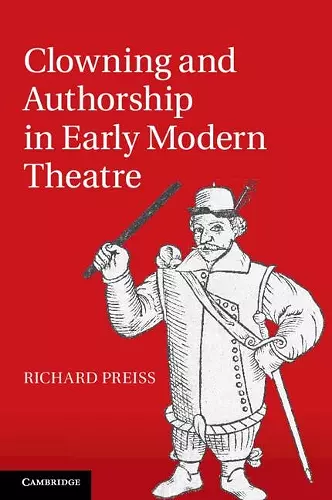Clowning and Authorship in Early Modern Theatre
Format:Paperback
Publisher:Cambridge University Press
Published:23rd Jun '22
Currently unavailable, and unfortunately no date known when it will be back
This paperback is available in another edition too:
- Hardback£96.00(9781107036574)

Richard Preiss presents a lively and provocative study of how the ever-popular stage clown shaped early modern playhouse theatre.
Richard Preiss presents a lively and provocative study of how the early modern stage clown defined - and changed - theatrical experience. Recovering the interactive entertainments with which comedians including Richard Tarlton, Will Kemp and Robert Armin engaged audiences, he draws new conclusions about how early modern theatre negotiated its own textuality.To early modern audiences, the 'clown' was much more than a minor play character. A celebrity performer, he was a one-man sideshow whose interactive entertainments - face-pulling, farce interludes, jigs, rhyming contests with the crowd - were the main event. Clowning epitomized a theatre that was heterogeneous, improvised, participatory, and irreducible to dramatic texts. How, then, did those texts emerge? Why did playgoers buy books that deleted not only the clown, but them as well? Challenging the narrative that clowns were 'banished' by playwrights like Shakespeare and Jonson, Richard Preiss argues that clowns such as Richard Tarlton, Will Kemp, and Robert Armin actually made playwrights possible - bridging, through the publication of their routines, the experience of 'live' and scripted performance. Clowning and Authorship tells the story of how, as the clown's presence decayed into print, he bequeathed the new categories around which theatre would organize: the author, and the actor.
'Original, sophisticated and deeply researched.' The Times Literary Supplement
ISBN: 9781108438773
Dimensions: 228mm x 150mm x 15mm
Weight: 440g
298 pages